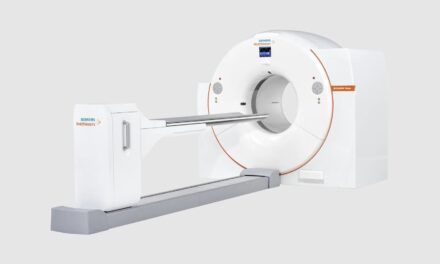Medtronic, a global leader in healthcare technology, announced its LINQ II Insertable Cardiac Monitor (ICM) system received 510(k) clearance by the FDA for use in pediatric patients over the age of 2 who have heart rhythm abnormalities and require long-term, continuous monitoring.
“For pediatric cardiologists who see many young patients needing continuous, long-term monitoring for infrequent or unknown heart rhythm conditions, this expanded indication for the LINQ II ICM is critically important,” says Jennifer Silva, MD, director of pediatric cardiac electrophysiology at Washington University in St. Louis and St. Louis Children’s Hospital. “The data generated from these small monitors can help us better tailor treatment decisions and ongoing management for our patients.”
The LINQ II system is a small, wireless ICM for patients with abnormal heart rhythms who experience infrequent symptoms including dizziness, palpitations, syncope (fainting) and chest pain, thereby requiring long-term monitoring or ongoing management. The LINQ II ICM, which has a battery life of up to 4.5 years1, allows patients to undergo magnetic resonance imaging (MRI) when needed, and, as an implantable device, does not interfere with daily activities such as showering, bathing, or swimming. The latest-generation device has been implanted in thousands of patients globally since it was first commercialized in 2020.
“As a result of this milestone, physicians will be able to provide actionable data to help diagnose underlying heart conditions and define treatment protocols in our younger patients with abnormal heart rhythms,” says Julie Brewer, president of the Cardiovascular Diagnostics and Services business, which is part of the Cardiovascular Portfolio at Medtronic. “And parents can have peace of mind knowing their child’s heart is being monitored continuously, and their doctor will be notified of abnormal heartbeats.”
The LINQ II ICM system also includes the recently launched AccuRhythm AI algorithms, which applies artificial intelligence (AI) to heart rhythm event data collected by the LINQ II ICM, improving the accuracy of information physicians receive so they can better diagnose and treat abnormal heart rhythms.
The two AI algorithms have shown to reduce the number of false alerts specific to the most common ICM false alerts — atrial fibrillation (AF) and pause (asystole) — by 74.1% and 97.4% respectively,2, 3 while preserving more than 99% of true alerts.4, 5
With integrated remote patient management, patients or their caregivers can choose to use their smartphones with the LINQ II ICM to automatically transfer device data via the MyCareLink Heart mobile app using BlueSync technology that enables secure communication via Bluetooth.
Medtronic has been a pioneer in the development of insertable cardiac monitors for more than 20 years; to date, more than 1.7 million patients have received a Medtronic ICM.6
References:
1 Nominal settings. LINQ II LNQ22 ICM clinician manual. M974764A001D.
2 Radtke A, Ousdigian KT, Haddad TD, et al. Artificial Intelligence Enables Dramatic Reduction of False Atrial Fibrillation Alerts from Insertable Cardiac Monitors. Heart Rhythm Journal. Published online August 1, 2021.
3 Cheng YJ, Ousdigian KT, Koehler J, et al. Innovative Artificial Intelligence Application Reduces False Pause Alerts while Maintaining Perfect Trye Pause Sensitivity for Insertable Cardiac Monitors. Presented at Heart Rhythm Society Conference July 31, 2021.
4 The pause algorithm preserved 100% of true pause alerts.
5 The AF algorithm preserved 99.3% of true AF alerts.
6 Medtronic Reveal Publications. Medtronic data on file. 2022.





